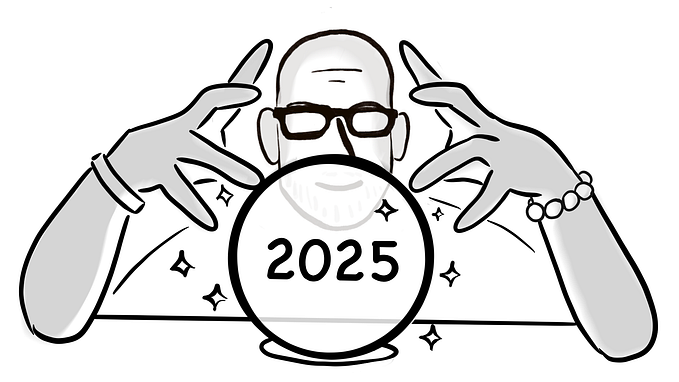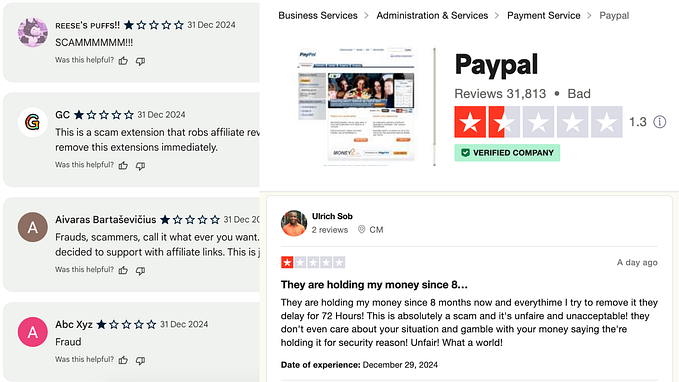
Alexa Everywhere
And what that might mean for Apple’s HomePod
My post a couple days ago about the opportunity for Amazon Echo devices in hotels was actually meant to be a preamble for this post, which I started writing a couple weeks back after stumbling upon this crazy stat while reading The Economist:
“Having sold 75% of all smartspeakers, Amazon is now the world’s biggest speaker brand.”
At first glance, this is sort of shocking. But then, when you pause to actually think about it, it’s not. How often do you buy speakers? Maybe once a decade? Maybe if you move and/or redo your home entertainment setup? Amazon (and to a lesser extent, Google, Microsoft, and soon Apple) have given us all a reason to buy speakers again. And not just one — a number of them, to put all over our homes, offices, etc.¹
Anyway, that was the jumping off point for a post, then Amazon put out their annual press release this week touting their holiday sales numbers. While Amazon famously (infamously?) doesn’t give absolute numbers, there’s no denying that even the relative numbers must be impressive. And the most impressive of these numbers are all about Alexa.
The Echo Dot was the number one selling device across all of Amazon during the holiday shopping season. (The Fire TV stick with the Alexa-enabled remote was the second-most popular product.) Again, no absolute sales numbers beyond “tens of millions of Alexa-enabled devices” — more than we usually get, by the way — but no matter: tens of millions is impressive enough.
I’ve been thinking about this recently not just in the context of putting Echoes in hotels, but also relative to Apple. As we’re all well aware, Apple had to delay their foray into the space, the HomePod, into 2018. But not only did they miss the all-important holiday shopping season, I’m increasingly thinking that they may have missed the boat.
Believe me, I know how dangerous this line of thinking is with regard to Apple. Apple is almost never the first-mover in a market. Instead, they prefer to sit back and let markets mature enough to then swoop in with their effort, which more often than not is the best effort (this is both subjective in terms of my own taste, and often objective in terms of sales). But again, I increasingly don’t believe that this will be the case with their smart speaker.

Look, I think Apple positioning the HomePod around music is smart — at least at first. Such a device strengthens and expands the Apple Music ecosystem, while giving Apple an avenue to focus on what they do best: creating high-end hardware sold at a premium.
But I think Amazon — and to a lesser extent Google — has not only established a market ahead of Apple’s entry, but has done so in such a way that will make the HomePod sound a bit out of touch upon launch.
Again, I know this is a risky prediction to make. But per above, I also know that Amazon is the number one seller of speakers in the world right now. And they’re doing this not by focusing on quality, as Apple will, but by focusing on making their digital assistant, Alexa, ubiquitous.
But, but, but. Android versus iPhone, you may counter with. Yes, Android is more the volume play while iPhone is more the profit play. Maybe such a dynamic will play out here as well.
Maybe. But the issue I see here is one of strength in numbers. That is, Amazon is winning this battle because they’re putting Alexa everywhere. Some of this is thanks to third-parties, but a larger part is the strategy to sell devices such as the Echo Dot for $29. At such prices, it’s not only a no-brainer to get one to at least try out — it’s a no-brainer to get a few of them to place all around your house. If this is the winning strategy — which I believe it to be — Apple cannot compete with this because it’s not in Apple’s DNA to run this type of playbook.
You’re not going to do that with the $349 HomePod. You might get one. Might. Die-hards might get two (probably to use in concert). Might.
This is where Apple folks — again, I’m one of them! — will again jump in and suggest that Apple’s strategy is different here. I agree! I just think it’s the wrong strategy.
One expensive speaker, no matter how nice, is not going to be able to compete with what Amazon is doing. Maybe Apple isn’t trying to compete with what Amazon is doing — after all, Siri on the HomePod will be extremely limited to start. Maybe — but then this is also a mistake.² Just as it was a mistake not to transform the Apple TV into Apple’s Echo device with an always-on Siri.
Perhaps Apple is thinking one “home hub” for Siri in the HomePod and then a handful of other end points in iPhones, iPads, and Apple Watches is how you combat the ‘Alexa Everywhere’ strategy. They’ve more or less said that the best assistant is the one you always have on you. This is true some of the time, but in building out this new voice-enabled world, it’s blinding them.

Which is surprising in that they must see their own app download charts in the App Store during the holidays. The number one app — overall — over the holidays was Amazon’s Alexa app. That can mean only one thing: Amazon is selling a shit ton of Alexa-enabled devices this holiday season. Apple doesn’t need a press release to tell them that, they have the data. The fact that it’s a pretty shitty app only reinforces the point: something is happening here.³
If Apple chooses to overlook that data point, perhaps they should just peruse a few more spots down the list to find the Google Home app, which sits just outside the top 5. Again, overall. Why? Undoubtedly Google’s $29 Home Mini.
Look, we can argue the merits of quality speakers versus cheap ones. One would hope that at $349, the HomePod is going to be a far better speaker than say, an Echo Dot.⁴ But my argument is that this ultimately won’t matter. Right now, speakers are directly linked to music. In the future of ‘Alexa Everywhere’, music will be but one facet of what speakers are for — an important use case, no doubt, but hardly the only one.⁵
All of this begs the question of what Amazon does to get Alexa truly everywhere… They’re clearly doing great in the home, with people buying up Echoes to put in various rooms. And I’m sure the hotel thing will happen. And cars are seemingly in the works as well.⁶ But what about making Alexa the only digital assistant you need no matter where you are?
This would seem to be a strength Apple (and to an extent, Google) has with their smartphones (and other devices — in fact, if Apple has a true wildcard play here, it may be the AirPods). So Amazon will eventually need a strategy for this as well. Presumably, it won’t be the Fire Phone 2, though who knows! Maybe instead it’s some tiny Alexa-enabled device you can put on a keychain or something like that. An Echo Puck? An Echo Ring? We’ll see.
All I know is that I love Amazon’s Alexa strategy right now. And I think Apple is in for a rude awakening with the HomePod if they wish to ever compete in this space — which they obviously do. Apple doesn’t mind being late to the game. In fact, they prefer it. But it feels like the game has changed ahead of their entry, for once.
¹ Yes, I still realize many folks find this creepy, but that’s a different debate. As the stat above makes clear, this is happening.
² For the record, I’m sure Apple’s plan is/was to expand Siri into a more Alexa-like home use-case over time with the HomePod. They’re just starting slowly, in a very Apple-like way.
³ Have you used the app? It’s awful. (And don’t get me started on their icon.) It feels like it was designed by a digital assistant. Doesn’t matter.
⁴ Though, interestingly, Google is seemingly taking both approaches in launching the $29 Home Mini and the $399 Home Max — more expensive than the HomePod!
⁵ As an aside, it would be fascinating to know just how fast Amazon’s music service is growing in terms of usage as a result of Alexa. My bet would be very fast. Certainly that’s the case in our household.
⁶ Some are already “hacking” this by taking the battery-powered Tap with them everywhere they go.











